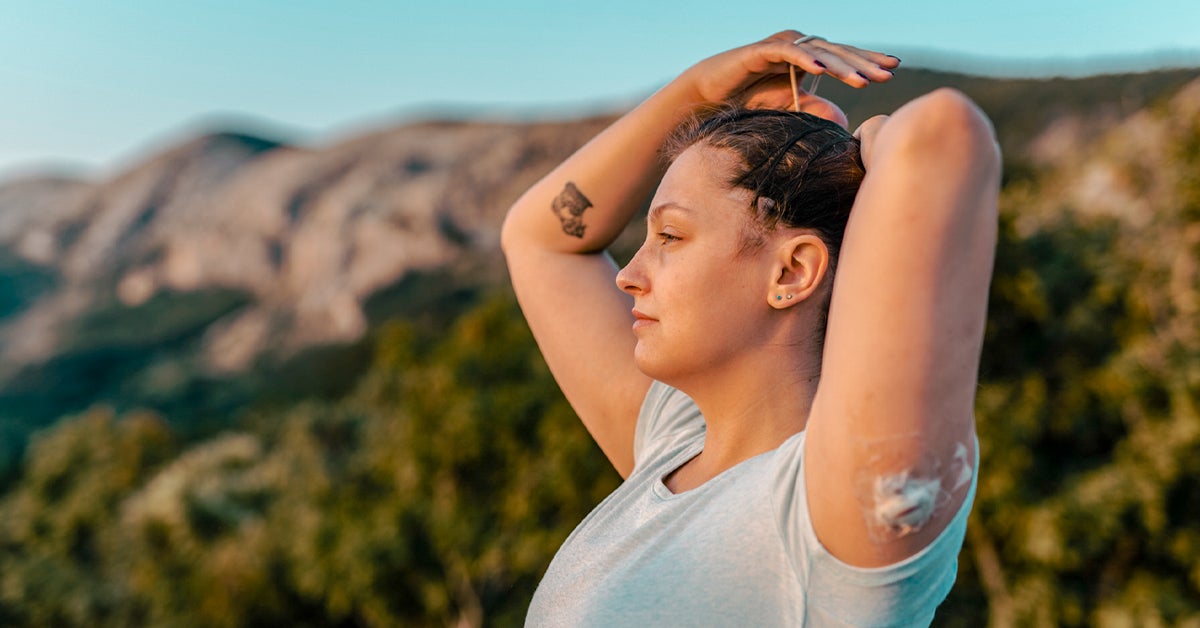
The reality is, sometimes our bodies need help.
Though I’ve been living with type 2 diabetes since 2000, it’s only in the last couple of years that I’ve become hyperaware of the stigma surrounding medication use to manage type 2 diabetes.
To be clear: Taking medication for type 2 diabetes doesn’t mean you’re failing.
So why the stigma? Type 2 diabetes is often seen as a lifestyle disease. The common misconception is that people with type 2 brought it on themselves with bad choices and laziness.
Many people believe that if we brought it on, we should be able to fix it.
With all the new diet trends and supplements available, many believe reversing type 2 is a quick fix through lifestyle.
The online arena is a landmine of diabetes advice:
Just eat keto and your diabetes will go away!
Just take XYZ supplement and your diabetes will go away!
Just drink (insert horrible vegetable juice here) and your diabetes will go away!
Just lose weight and your diabetes will go away!
Just. Just. Just.
But what about when it doesn’t?
Over the last 8 years, I’ve completely overhauled my life. On paper, I’ve done everything “right.”
Change my way of eating? Check.
Start exercising? Check.
Lose 100 pounds? Check.
I even went so far as to become a personal trainer and fitness instructor, making exercise my career. But guess what? I still need medication to manage my numbers.
Looking through the lens of the outside world, it would be easy for me to be disappointed or feel let down by my body.
Instead, here are some tips that have helped me accept my medication regimen as part of my diabetes self-care, instead of looking at it as a reflection of my efforts and self-worth.
I choose to see medication as a tool in my diabetes management toolbox.
My medication falls into the same category as my blood glucose meter, continuous glucose monitor (CGM), weights, scale, and food choices.
They are all equally important to my overall goal of living a long and healthy life with type 2 diabetes.
With diabetes, everything seems to be about the numbers. A1C, fasting blood sugar, cholesterol, how many days a week you exercise, how many carbs you’re eating, and how many medications you’re on.
It’s hard to avoid comparing your numbers with someone else’s. It’s especially difficult not to compare your progress with someone else’s.
I had to learn to put blinders on and focus on my own path. My body, my diabetes, and my medical history are unique, so measuring myself against others didn’t make any sense.
Over the last 2 decades, I’ve needed different levels of intervention in the form of medication.
During my two pregnancies, I was on mealtime and long-acting insulin. Once I was finished breastfeeding, I returned to only oral medications.
There have also been periods of time, due to personal crisis, when nutrition and exercise weren’t my priority. During these times, a medication was added to help bring my numbers down.
When I recommitted to a healthier way of living, I was able to reduce or eliminate the medication altogether.
I had to be OK with needing help, whether it was for a season or permanently.
The world is, quite literally, at our fingertips. With a quick online search, millions of articles appear with seemingly legitimate information on how to live with, manage, or even cure your type 2 diabetes (no such thing, by the way).
I had to limit my consumption. This meant only taking in reliable sources of information.
I avoided social media “doctors” claiming to have all the answers. I avoided listening to the well-meaning stranger who commented on my Instagram post about the herbalist who cured his cousin.
I made it a part of my self-care to unfollow people who regularly told me my way was wrong or shamed me for the way I chose to manage my diagnosis.
Having an open line of communication with my medical care team is an essential part of my diabetes management.
I had to meet several doctors until I found a doctor I was comfortable with.
Now, I’m always open and honest about my feelings, plans, hesitations, and concerns. I ask any questions I have so my doctor has an opportunity to address them.
Being my own advocate is empowering, and my doctor is there to be my partner. I’ve learned not to be afraid of speaking up.
The reality is, sometimes our bodies need help.
What I’ve learned over the last 21 years is that there’s no one way to manage type 2 diabetes.
Some will be able to manage their blood glucose through lifestyle and weight loss and others will need medication.
Whatever the method, the goal is the same: to live long, healthy, fulfilling lives, in spite of type 2 diabetes.
Mary Van Doorn lives in Georgia with her husband, their two kids, three dogs, and three cats. She’s a type 2 diabetes advocate and the founder of Sugar Mama Strong Fitness & Wellness and Sugar Mama Strong Diabetes Support. When she’s not taking care of the kids, the house, or the zoo, you can find her binge-watching her favorite shows: “Grey’s Anatomy,” “This is Us,” and “A Million Little Things.”
April 07, 2021 at 04:57AM
https://ift.tt/3sV8ECk
5 Tips for Overcoming Medication Stigma with Type 2 Diabetes - Healthline
https://ift.tt/3d5QSDO

No comments:
Post a Comment